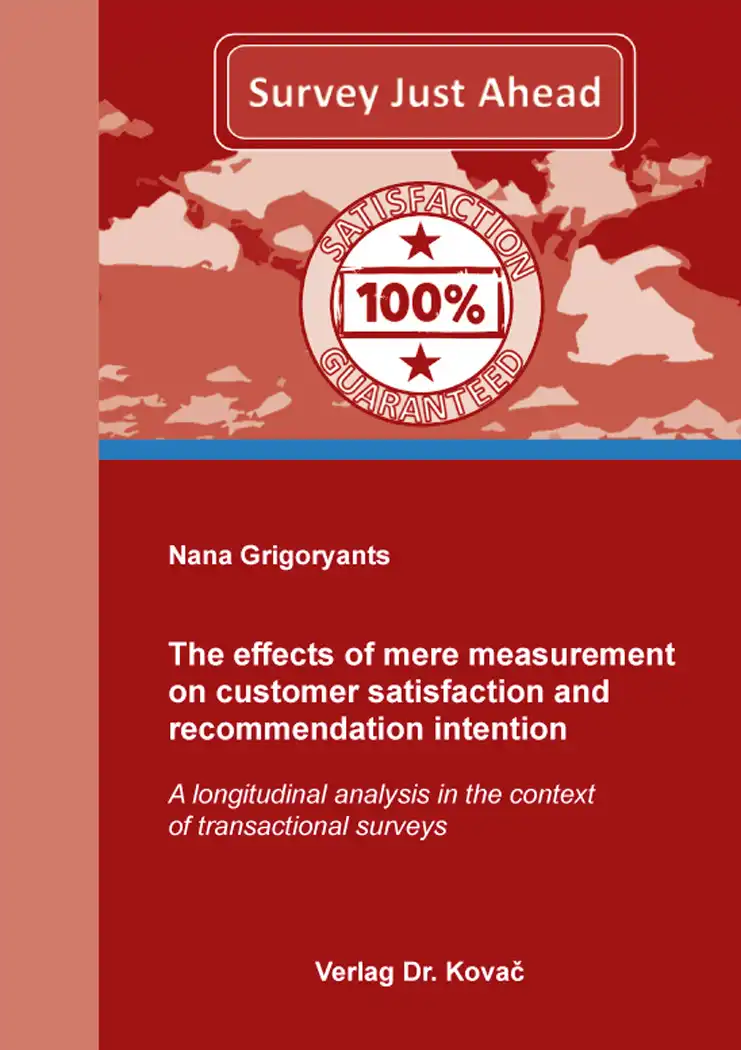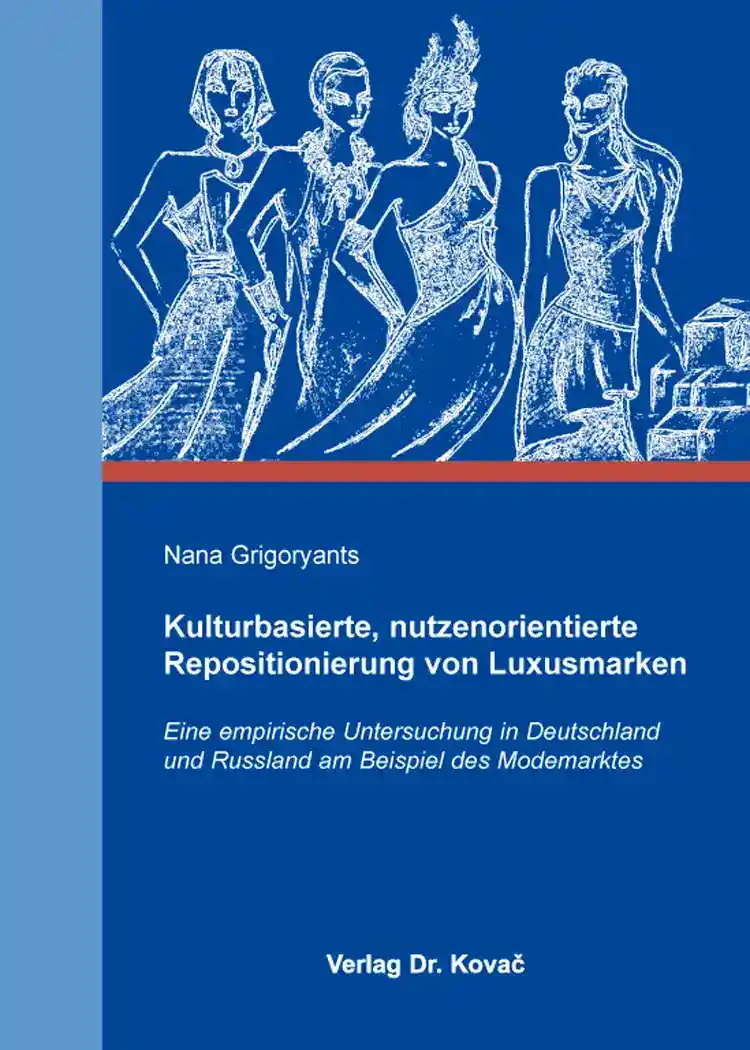Nana GrigoryantsThe effects of mere measurement on customer satisfaction and recommendation intention
A longitudinal analysis in the context of transactional surveys
– in englischer Sprache –
Studien zum Konsumentenverhalten, volume 94
Hamburg 2023, 304 pages
ISBN 978-3-339-13718-0 (print)
ISBN 978-3-339-13719-7 (eBook)
About this book deutschenglish
“There is nothing so absurd that it cannot be believed as truth if repeated often enough.” – William James (1842-1910) American philosopher and psychologist.
The so called mere measurement phenomenon evolves from frequent survey participation. It increases accessibility of preexisting attitudes and subsequently effects behavioral intentions and behavior.
Current research work focuses on the long-term impact of survey frequency on customer satisfaction and recommendation intention in the context of transactional surveys of B2B customers in six countries. Significant results are generated supporting the assumption that the simple act of involving customers into regular behavioral intention surveys can positively impact the willingness to behave upon that.
The mere measurement effect of survey frequency on customer satisfaction and recommendation intention develops its maximum impact in the long run. As expected, customer satisfaction has a considerable effect on the recommendation intention. Also, the role of the mere measurement effect as moderator of the attitude-intention link is supported by the research outcomes.
The study focus is extended by the inclusion of positive and negative customer mood states mediating the direct effect. Customer moods induced by survey frequency are found to impact customer satisfaction as intervening variable. The relationship between survey frequency and customer satisfaction is partially mediated by both positive and negative moods, since 80% of the total effect are attributed to the direct effect.
Freedom of choice as moderator of the relationship between survey frequency and customer moods strengthens the effect for positive moods and weakens for negative moods.
Present research work provides a starting point for discussions about a phenomenon emerging from a survey participation and the measurement process itself and offers thought-provoking impulses on how and why responding to surveys can influence subsequent attitudes and intentions.
Keywords
B2BEntscheidungsfreiheitKonsumentenverhaltenKundentreueKundenzufriedenheitMarketingVerhaltenspsychologieIhr Werk im Verlag Dr. Kovač
Weiteres Buch der Autorin
Kulturbasierte, nutzenorientierte Repositionierung von Luxusmarken
Eine empirische Untersuchung in Deutschland und Russland am Beispiel des Modemarktes
Hamburg 2015, ISBN 978-3-8300-8504-1 (Print) | ISBN 978-3-339-08504-7 (eBook)

